Letters from Vietnam: Winter 2019 edition
Letters from ...Information on and insight into business and investment in Vietnam
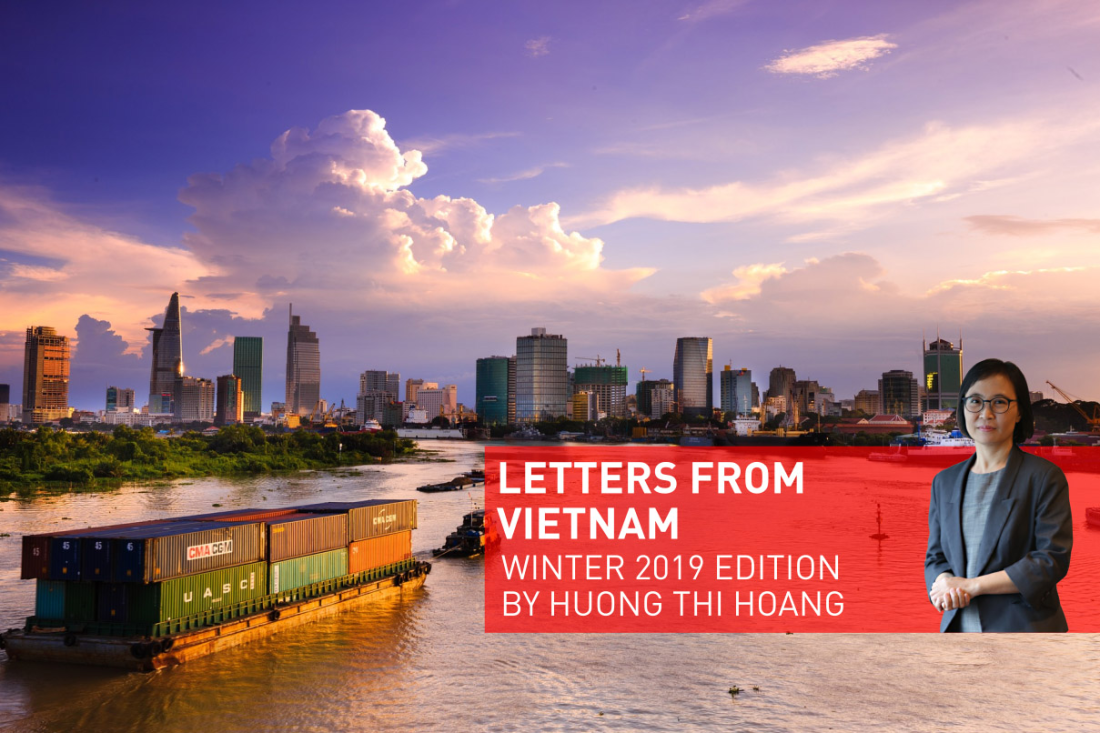
Vietnam is one of the fastest growing economies in the world. For export-focused companies it offers a rapidly developing market and unimagined potential.
Every four months, Huong Thi Hoang, director of our local Bremeninvest office, reports from Ho Chi Minh City on trends, opportunities and new developments in her homeland.
Our topics in December:
Why Vietnam? A nation in the ascendant
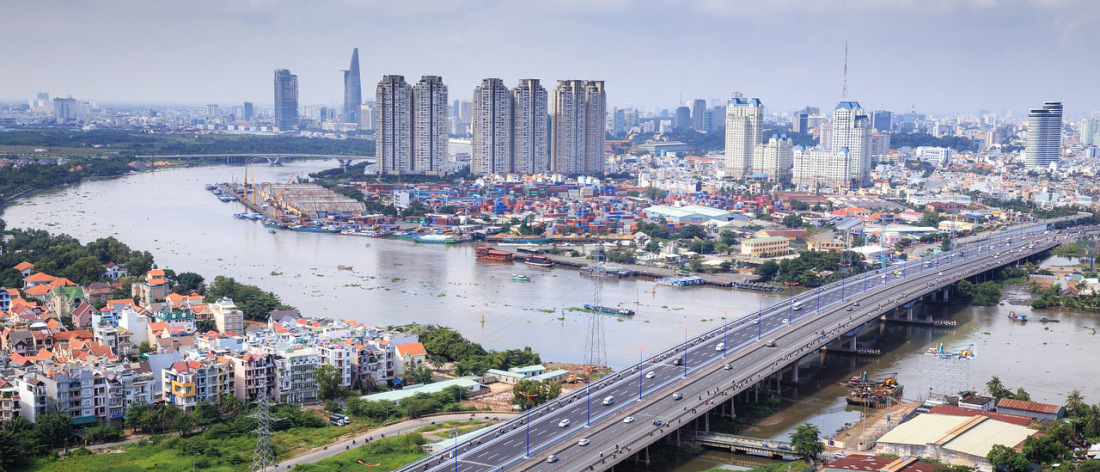
Vietnam is one of the fastest growing economies in the world, and has been for decades. But it is also a socialist republic. How do these apparent contrasts fit together?
Since the defining ‘doi moi‘ reforms of 1986, Vietnam’s classic socialist economy has been transformed into a ‘socialist-oriented market economy’, or in other words, capitalism with a socialist influence. The Communist Party still holds the reins of power, both in business and in public life, but a series of reforms has provided far greater freedom for potential entrepreneurs.
Although there are still thousands of state-run enterprises, not to mention five-year plans, price regulation and a few sectors still completely under state control (utilities, banks, telecommunications), large parts of the economy, particularly commerce, have been liberalised and even opened up to foreign investors (albeit subject to restrictions). The government’s aim is to permit a market economy in those areas where it benefits the country’s economic development – and naturally it is the government that decides which areas these are.
However, Vietnam’s strong economic surge is not due solely to market deregulation. The ongoing process of opening up the country to the outside world through various international agreements – the latest being the signing of a free trade agreement with the EU – makes Vietnam attractive to foreign investors. Labour costs are only half what they are in China so many manufacturers are relocating production facilities here. Vietnam is also investing heavily in public infrastructure and human capital in order to make it more attractive to foreign investors. A digital sector is currently emerging with a large number of start-ups.
The impact of the reforms is clear: from being one of the world’s poorest nations, Vietnam is now a middle-income country (ranked 130 out of 214 nations, figures from 2017). Exports account for almost 100 per cent of gross domestic product – most of the country’s wealth comes from the export sector and the activities of foreign investors.
But where there is light, there is also shadow: corruption is endemic in business (Vietnam is ranked 117 out of 180 in the global corruption index). Networks play a major role in this, with Communist Party members in private companies continuing to exercise influence on the economy. And while standards in business have improved enormously, press freedom and human rights are underdeveloped. Whether and to what extent reforms will boost the standard of living in future remains one of the key questions facing Vietnam.
Start-up tour: Bremen’s close ties with Asia
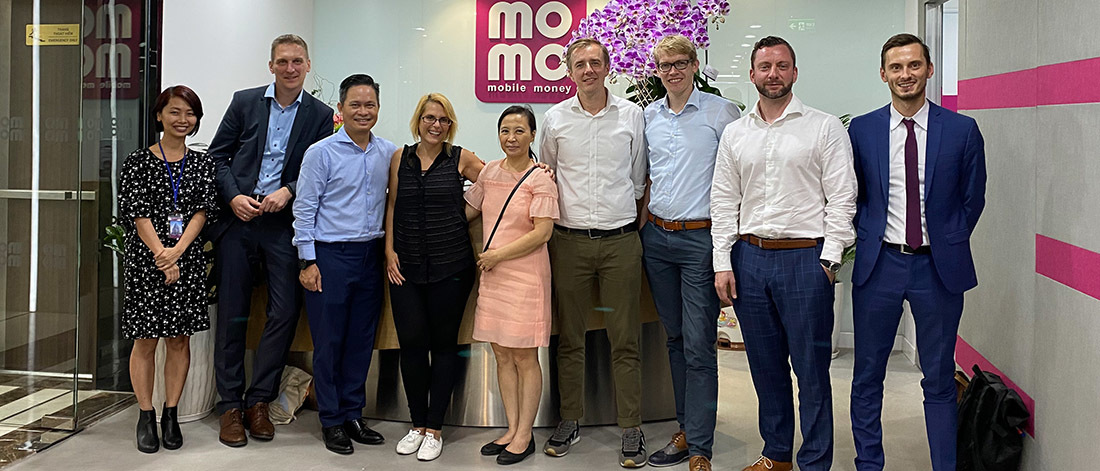
Total immersion and the chance to experience the enterprising spirit of Asia at first hand. That was the aim of the Bremen start-up tour of Singapore and Vietnam organised by the MO1N start-up camp in November 2019. “It was fascinating to see the differences between the two countries. Singapore is high-tech. Vietnam is still an emerging economy but with a very young population who have the will and the drive to bring about real change,” says organiser and entrepreneur André Wollin. “IT is one of the fastest-growing sectors in Vietnam. Major advances will be made in the next few years.”
Fifteen participants spent eight days visiting the two countries, gathering ideas and impressions. The itinerary included conferences and, in particular, visits to start-ups such as the payment services provider MoMo and the logistics start-up Logivan in Vietnam’s Ho Chi Minh City. In March 2020, the participants will meet up with interested parties and invited guests from the partner countries to discuss their experiences and continue their networking. More on this at: https://www.moin.camp
MoMo and the digital gold rush
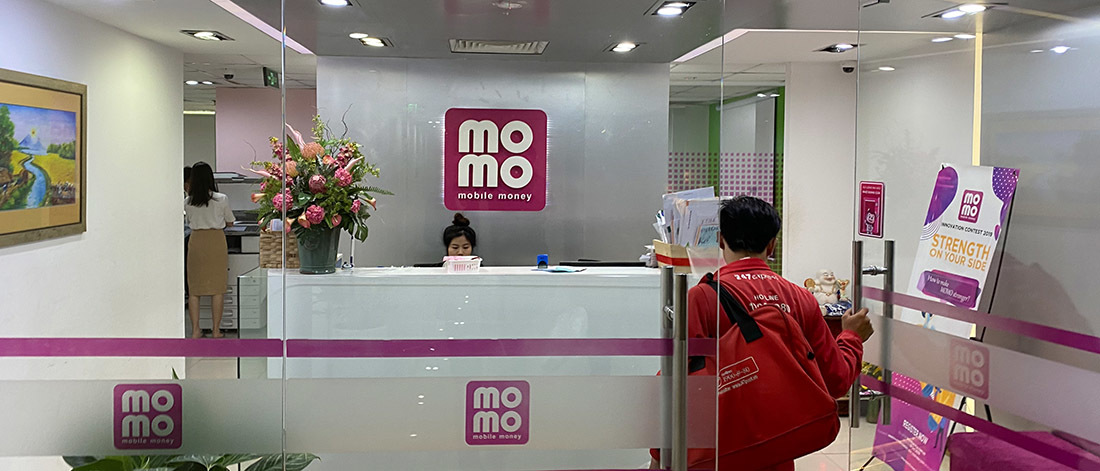
Compared with its Asian neighbours, Vietnam is still a cash economy. Only 59 per cent of Vietnamese have a bank account. As a proportion of GDP, the volume of cash transactions is almost twice as high in China. But these figures are rapidly changing and a number of start-ups are seeking to profit from the digital gold rush.
One of the largest is MoMo, a service with 13 million users. The app offers mobile payment options, money transfers and an e-wallet that allows users to make payments to 12,000 partners at more than 100,000 acceptance points – both online and offline. Its partners include Vietnam’s biggest banks as well as utility companies, insurance companies and stores, so that virtually any kind of payment is possible using the app. With an investment of more than €100 million from a US venture capitalist, MoMo started the year as one of Vietnam’s most valuable start-ups.
Paying by app is simpler and more convenient than opening a bank account, and the number of cashless payments is likely to rocket, particularly in Vietnam’s more rural areas.
Although MoMo is Vietnam’s largest provider of payment services, it is far from the only one. Almost 30 companies operate in this sector, including ZaloPay, the payment service provided by the communications app Zalo. Zalo has more than 100 million users across Asia, which means a large potential pool from which to recruit more customers for its payment service. It is a ‘super app’, i.e. an app that offers several applications within the same user environment, similar to the Chinese WeChat. But MoMo is also on the way to becoming a super app, as the company is constantly expanding its own service offering. Time will tell which of the many providers will ultimately be left standing. One thing is clear, though: mobile payments are the future in Vietnam.
Growing in Vietnam: Vietnam’s German Chamber Network incubator
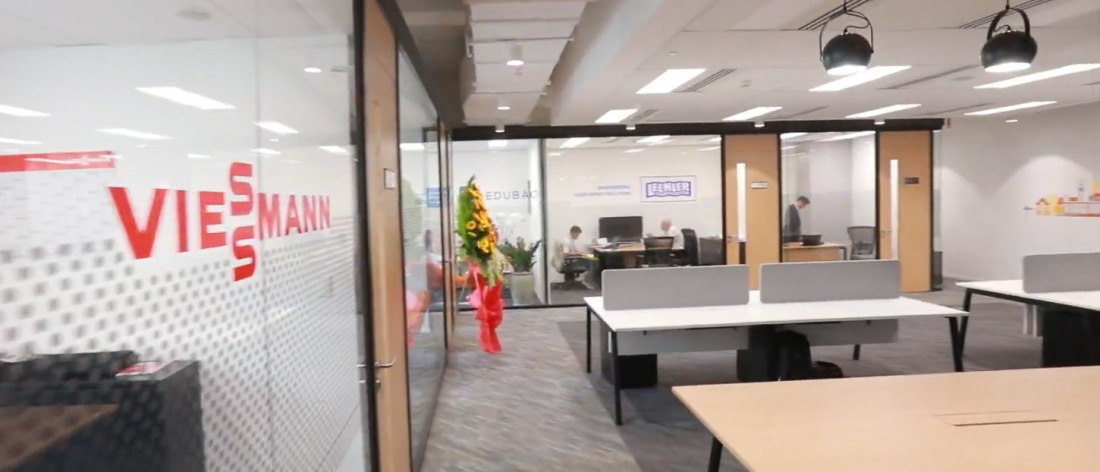
Entering a new market requires not only financial resources but also knowledge of the market and a local presence. The purpose of the German Business Incubator of the German Chamber of Industry and Commerce in Vietnam is to assist German companies that are interested in doing business in Asia – and Vietnam in particular, obviously. Based in the prestigious Deutsches Haus building in Ho Chi Minh City, it offers modern office facilities and hosts regular events and networking opportunities aimed at helping companies find their feet in this unfamiliar market. Events include workshops on cultural differences between Vietnam and Germany and tips for companies on how to develop their business model or find qualified staff. The incubator is designed for SMEs and start-ups, and offers a mix of single offices, co-working spaces and meeting rooms with a total floor space of more than 340m2.
Young Vietnamese are interested in Germany
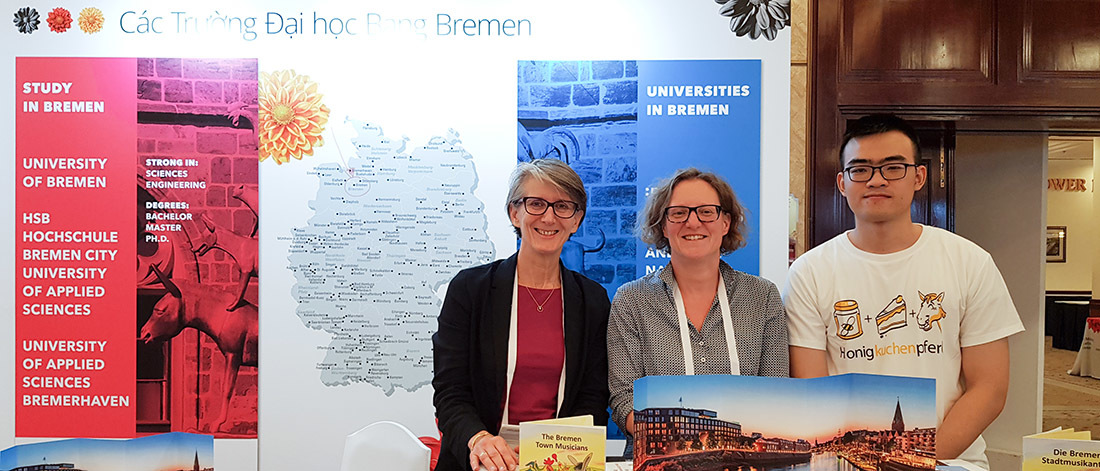
Vietnam is eager for education – every year, hundreds of thousands of students apply for university. Getting some of them interested in studying in Germany was the aim of a trip to Vietnam by the University of Bremen and the Bremen University of Applied Sciences in December 2019.
“The Vietnamese have a strong affinity with Germany – partly for historical reasons. I have met lots of outward-looking people there who are interested in a high-quality education,” says Dr Annette Lang, head of the International Office at the University of Bremen. The science and technology (STEM) subjects were particularly in demand, as sectors such as Vietnam’s growing digital economy attract many young adults with interesting jobs and attractive workplaces.
In addition to visits to Hanoi and Ho Chi Minh City, the trip included meetings with representatives of Germany’s overseas institutions such as Bremeninvest’s overseas office, alumni and contacts with companies. The objective of the tours was to build a network, inspire young Vietnamese to study in Germany, and to intensify cooperation – such as through work placements as part of a degree course. “University courses in Asia often lack a practical component – which is why our university is a very attractive cooperation partner for Vietnamese institutions,” explains Dr Heike Tauerschmidt, head of the International Office at the Bremen University of Applied Sciences. “Vietnam is on the threshold of a new era and the next generation is strong and highly disciplined. Our experience so far has been very positive and we hope to be able to build on this in future.”
Kolja Umland
Akquisition & Projekte
Projektleiter internationale Ansiedlung, Schwerpunkt Vietnam & ASEAN
+49 (0) 421 9600-339
Success Stories
Bremen’s Economy in Figures: Statistics 2025
The State of Bremen is a strong economic hub. A look at the latest statistics highlights its economic strength — summarising key data such as cargo volumes, export performance, industry turnover, and more.
Learn moreMedium-Sized Companies in Bremen Showcasing the Full Range of the Local Economy
Medium-sized companies form the backbone of Bremen’s economy. They create jobs and produce goods that are in demand worldwide. Here is a selection of ten businesses that illustrate the diversity of Bremen’s economic landscape.
Learn moreTwelve international food and beverage companies in Bremen
Becks and Melitta may be high-profile brands, but international food and beverage companies also manufacture lots of other products in Bremen and Bremerhaven. Here are twelve examples.
Learn more
